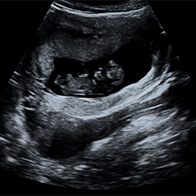The Benefits of Progesterone Supplements to Prevent Future Miscarriage

A 2020 British research study indicated that giving progesterone to women with a history of miscarriage who are experiencing early pregnancy bleeding could lead to 8,450 more babies being born each year in the United Kingdom (U.K.).
Your ovaries and placenta naturally secrete progesterone in early pregnancy. It is a hormone that plays an essential part in maintaining a healthy pregnancy. Progesterone stimulates the lining of the uterus to thicken and accept a fertilized egg. It also stops uterine muscle contractions that cause the body to reject an egg.
Published in the American Journal of Obstetrics and Gynecology, researchers carried out two clinical trials to investigate if progesterone supplements could help prevent miscarriage in women who presented with early pregnancy bleeding. The trials were based in the U.K. and led by the University of Birmingham and Tommy's National Centre for Miscarriage Research.
An overview of the clinical study
Previous to this 2020 study, several smaller trials have suggested that progesterone supplementation may reduce the risk of pregnancy loss in women who suffer from recurrent miscarriages. To build on this knowledge, researchers carried out two clinical trials:
- The PROMISE [PROgesterone in recurrent MIScarriagE] trial included 836 women with unexplained recurrent miscarriages at 45 hospitals in the U.K. and the Netherlands.
- The PRISM [PRogesterone In Spontaneous Miscarriage] trial included 4,153 women with early pregnancy bleeding at 48 hospitals in the U.K.
These large, high-quality, multicenter placebo-controlled trials investigated the advantage of giving women a course of self-administered twice-daily progesterone. In the PROMISE trial, the supplements were taken vaginally; in the PRISM trial, they could be taken either rectally or vaginally. Women started the progesterone supplements when they first presented with early pregnancy bleeding up until 16 weeks of pregnancy to prevent miscarriage.
Key findings from the study include:
- Although the PROMISE trial had substantial statistical uncertainty, both studies showed a 3 percent higher live birth rate with progesterone.
- Treatment with vaginal micronized progesterone 400 mg twice daily was associated with increasing live birth rates, according to the number of previous miscarriages.
- Results showed a 5 percent increase in the number of babies born to those given progesterone who had previously had one or more miscarriages compared to those given a placebo.
- A more significant benefit was seen in those who had had three or more miscarriages. In this scenario, the results reported a 15 percent increase in the live birth rate when taking the progesterone compared to the placebo group.
As mentioned at the beginning of this article, researchers suggest using this treatment could lead to the birth of 8,450 more babies each year in the U.K. alone.
Which women benefit from progesterone supplements and why?
Tommy's reports 1 in 4 pregnancies ends in miscarriage, with 23 million miscarriages occurring each year worldwide. This has a significant impact on women and their families, both physically and psychologically.
While half of miscarriages can be due to chromosomal issues, the other half is thought to potentially be due to low progesterone, said Tara Scott, M.D., chief medical officer at the Revitalize Medical Group and medical director of Integrative Medicine at Summa Health Systems.
These studies aimed to see if progesterone supplements made a difference in the number of live births in women at risk and/or with a history of pregnancy loss.
"For women with bleeding but no previous miscarriage, the results did not show an increase in live birth rate with progesterone treatment," Scott said. "However, there was a significant difference in the groups that had one or more previous losses (highest results were seen in women with three losses or greater)."
"The role of first-trimester progesterone supplementation in the treatment of pregnancies at high risk of miscarriage is a long-standing research question that has been debated in the medical literature for over 60 years," stated Adam Devall, BMedSc (Hons), Ph.D., senior clinical trial fellow at the University of Birmingham and manager of Tommy's National Centre for Miscarriage Research.
Devall, who was part of the research team on the studies, explained, "The PRISM trial found that women with the dual risk factors of early pregnancy vaginal bleeding (known as threatened miscarriage) and a history of one or more previous miscarriages would benefit from progesterone treatment to increase the likelihood of a successful live birth."
The trial summary suggests clinicians should consider offering women with vaginal bleeding and a history of one or more previous miscarriages a course of treatment with vaginal micronized progesterone.
What treatment regimen is recommended to these women?
"We recommend vaginal micronized progesterone treatment (400 mg, twice daily) up to 16 weeks of pregnancy," Devall said.
He went on to explain that in the U.K., the National Institute for Health and Care Excellence (NICE) guideline was updated in November 2021 to incorporate this recommendation. "Therefore, doctors in the U.K. should now be prescribing vaginal progesterone for this indication," Devall added.
When looking at the benefit versus risk of taking progesterone, Scott advised there was no increase in congenital defects in women who took progesterone. She noted progesterone is relatively well tolerated with few side effects, is widely available, and there is not much risk.
"It is my opinion—especially as a woman who struggled with infertility, luteal phase defect, and miscarriage, and took progesterone after that—that the benefits far outweigh the risk," Scott shared. "I agree that if you have had one prior loss and you have early pregnancy bleeding, you should be offered micronized progesterone until 16 weeks."
What are the next steps in this research?
Devall said further research is needed for women who have suffered 4, 5 or 6-plus previous miscarriages (known as higher-order miscarriage). They may benefit from progesterone treatment even in the absence of early pregnancy bleeding.
"A post-hoc subgroup analysis of data from the PROMISE trial indicated a biological gradient of efficacy with increasing numbers of miscarriages that a woman has suffered," Devall said. "Additionally, a meta-analysis of all studies that have given progestogens as a treatment for recurrent miscarriage showed an increase in the chance of live birth.
"Therefore," he concluded, "further studies on the use of progesterone treatment for women with higher-order miscarriage would be beneficial."




















